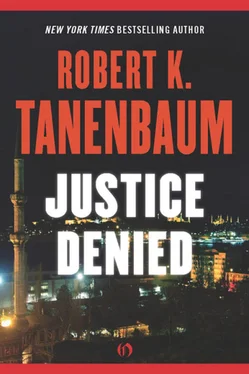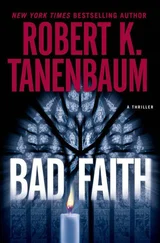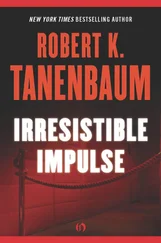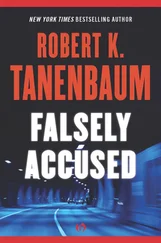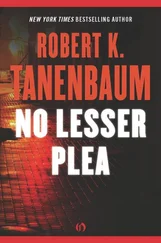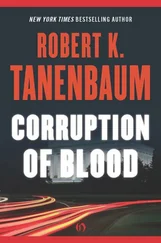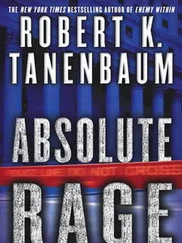Robert Tanenbaum - Justice Denied
Здесь есть возможность читать онлайн «Robert Tanenbaum - Justice Denied» весь текст электронной книги совершенно бесплатно (целиком полную версию без сокращений). В некоторых случаях можно слушать аудио, скачать через торрент в формате fb2 и присутствует краткое содержание. Год выпуска: 2010, Издательство: Open Road Integrated Media, Жанр: Криминальный детектив, на английском языке. Описание произведения, (предисловие) а так же отзывы посетителей доступны на портале библиотеки ЛибКат.
- Название:Justice Denied
- Автор:
- Издательство:Open Road Integrated Media
- Жанр:
- Год:2010
- ISBN:нет данных
- Рейтинг книги:3 / 5. Голосов: 1
-
Избранное:Добавить в избранное
- Отзывы:
-
Ваша оценка:
- 60
- 1
- 2
- 3
- 4
- 5
Justice Denied: краткое содержание, описание и аннотация
Предлагаем к чтению аннотацию, описание, краткое содержание или предисловие (зависит от того, что написал сам автор книги «Justice Denied»). Если вы не нашли необходимую информацию о книге — напишите в комментариях, мы постараемся отыскать её.
Justice Denied — читать онлайн бесплатно полную книгу (весь текст) целиком
Ниже представлен текст книги, разбитый по страницам. Система сохранения места последней прочитанной страницы, позволяет с удобством читать онлайн бесплатно книгу «Justice Denied», без необходимости каждый раз заново искать на чём Вы остановились. Поставьте закладку, и сможете в любой момент перейти на страницу, на которой закончили чтение.
Интервал:
Закладка:
“I box,” said Marlene. A snuffle of unbelieving mirth. “No, I don’t mean I get in the ring. I have a body bag and a speed bag, and I jump rope and curl dumbbells. My dad taught me, and I’ve kept it up.”
“Really?” from both.
“Yeah, he was a welterweight contender at one time back in the forties, or thought he was before he spent six minutes in there with Kid Gavilan. He stuck to plumbing after that.”
Polite smiles, but Marlene caught the little look that passed. The sisters Stone did not know people whose fathers were ex-pugs or current plumbers. One of the nearly invisible injuries of class that aren’t supposed to happen in America, but which make up much of the grit in the national gears. Sacred Heart and Smith and Yale Law had taken much of the sting out of it for Marlene; still, she could recall very much the same look on her own dear one’s face when she had first told him about where she came from, under the fancy veneer. A brief thought, and a familiar one, brushed across her mind: that Karp might have been, not happier maybe, but more content with another perfect Jewish princess like Susan Weiner. She was glad now she had sprung for the lunch.
The day-care was on Lispenard off Church, a few blocks north. They walked up Church. Susan Weiner did most of the talking, much of it about herself and her nice life. Marlene let the talk wash over her, content to just swing along the street. It was a pleasant day in the City. That is, the sky was the color of a lizard’s belly and the air stank of petroleum byproducts, but at least it wasn’t raining ice.
And she had high expectations. A perfect being like this could not have found anything less than the perfect day-care.
And so it proved. The woman who took care of six children in her large, sunny loft was a matronly soul named Lillian Dillard, who affected an embroidered smock and a plait of gray-blond hair down to her butt. She made quilts and wrote poetry and would someday finish her dissertation on early childhood behavior. The children, ranging from eight months to three, obviously loved her. Susan’s three-year-old boy barely acknowledged his mother’s presence, which Marlene took as a good sign. There was no TV in the large front room, another good sign. Marlene turned on the charm, was accepted, and wrote out a check for the first month in advance.
Back at her desk, feeling pleased with herself, she flipped through her messages, returning calls.
“Morgue, we doze but never close, Maher.”
“Denny? Marlene.”
“Ah, the pearl of Centre Street. How nice to hear your voice.”
“Likewise. What’s up?”
“Hmm. We’ve got a Jane Doe here. A splatter case. Went off a six-story building in Alphabet City. Some marks I don’t like on the body, and the vaginal and esophageal smears are positive.”
“You think rape and he killed her?”
“I wouldn’t go that far yet,” said Maher. “The girl was fairly torn up. On the other hand, I have some anomalous results on the secretion tests. We have more than one sperm donor here.”
“What do the cops think?”
“They think a pross. They think suicide.”
“They would. They made her for a pross? No, you said a Jane Doe.”
“Right. Her face is jam. But the kicker is, I have clear human tooth marks, three bites, same guy, and deep enough to draw blood. That always makes me steer away from either a trip to the moon on gossamer wings or a straight commercial transaction. Of course, I don’t date much anymore …”
“Drugs?”
“No tracks. Tissues are negative for barbs, amphetamines, and opiates. No booze either.”
“Who caught the case?”
Marlene heard paper shuffle. “Camano. Ninth Precinct.”
She wrote down the name and the phone number Maher gave her, thanked the medical examiner, and hung up.
The call from the M.E. was supposed to be automatic, but some of the medical examiners thought it too much trouble to call the D.A.’s office directly. They figured the cops were in charge and that it was their call. Besides, they had a lot to do.
Marlene looked at the name she had written down and wondered if it was even worth making the call. The cops had a lot to do as well, and so did she. About three thousand rapes were reported to the police in Manhattan every year, out of which Marlene would be glad if she secured fifty convictions. Of course, the woman had been murdered too, which meant the cops had to give it more attention. Lucky her.
The problem was that there were good and bad rapes. The good rapes were when the age, race, or social class of the perp and the victim were widely disparate, or when there had been notable violence. Rapes of prostitutes were, however, the worst rapes of all. The casual murders that were part of the occupational hazard in the City’s sex trade were only slightly better. If the cops had decided that Jane was a whore who had taken early retirement, then convincing them that she was a whore who had been raped and killed would not get all that much more action out of them. Sighing, she made the call.
The homicide bureau occupied a small suite of offices on the sixth floor of 10 °Centre Street. Only Karp and a few senior people like Hrcany had actual offices. These gave on to a large common area jammed with secretaries’ desks, the domain of Connie Trask. The rest of the A.D.A.’s were stuck in glass cubicles in a large bay a short distance down the main sixth-floor corridor.
It was Karp’s habit after lunch, and before court started again in the afternoon, to prowl his turf, poking into papers and confronting malefactors. This habit obviated any number of formal meetings, which he abhorred. In this way, emerging from his office, faintly redolent of Italian sausage, Karp made the discovery that brought him back into People v. Tomasian.
A clerk had just brought in a pile of Xeroxing, which she distributed among the wire baskets arranged for that purpose, one for each attorney, on a table in the corner of the secretaries’ bullpen. Karp wandered over and thumbed through some of the still warm papers. One of the folders in Roland Hrcany’s basket was labeled TOMASIAN. It contained copies of material produced by the arresting officers, mostly DD-5 forms, which cops used for describing in some detail what they had done to pursue the investigation and the results, if any. Karp skimmed the reports and the list of items seized under the search warrant. He dug deeper. The autopsy report. Deeper. A description of the items found on the victim. Here he stopped, puzzled, and leafed through the stack more carefully. Then he tossed the folder back into the basket and, frowning, strode off in search of Roland Hrcany.
Roland was not in his office when Karp looked for him there. He was in court, as it happened, for a bail hearing on the case in question. Karp sat in the back of the courtroom and watched Tomasian’s defense counsel, a stocky, grave man who really did look a lot like Raymond Burr, move for the setting of bail. He pointed out Tomasian’s clean record, the presence of a large and caring family, the defendant’s gainful employment in a family business, his ownership of a condo. Roland rose to rebut and argued with equal vehemence that the defendant was accused of a particularly heinous crime; he had resources and contacts outside the country; he was part of an international terrorist network.
Karp sympathized with the judge. Justice was at least partially sighted in cases like this one, and able to read the papers and watch TV. Poor kids from the lower orders of the City who gunned down people on the streets were invariably remanded to jail without bail. On the other hand, the well-dressed and harmless-looking man sitting before him was supposedly innocent until proven guilty, and had a constitutional right to reasonable bail.
Читать дальшеИнтервал:
Закладка:
Похожие книги на «Justice Denied»
Представляем Вашему вниманию похожие книги на «Justice Denied» списком для выбора. Мы отобрали схожую по названию и смыслу литературу в надежде предоставить читателям больше вариантов отыскать новые, интересные, ещё непрочитанные произведения.
Обсуждение, отзывы о книге «Justice Denied» и просто собственные мнения читателей. Оставьте ваши комментарии, напишите, что Вы думаете о произведении, его смысле или главных героях. Укажите что конкретно понравилось, а что нет, и почему Вы так считаете.
